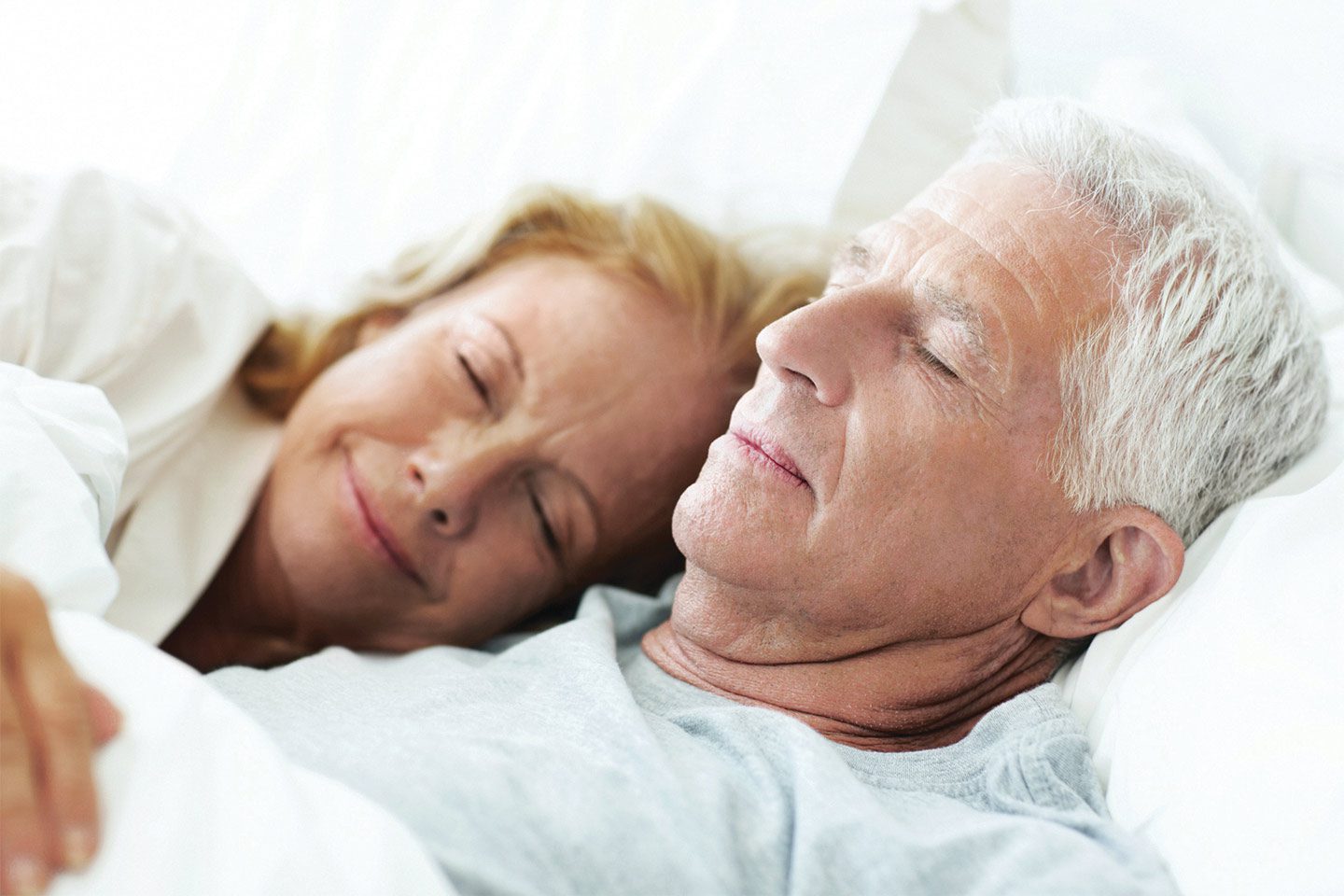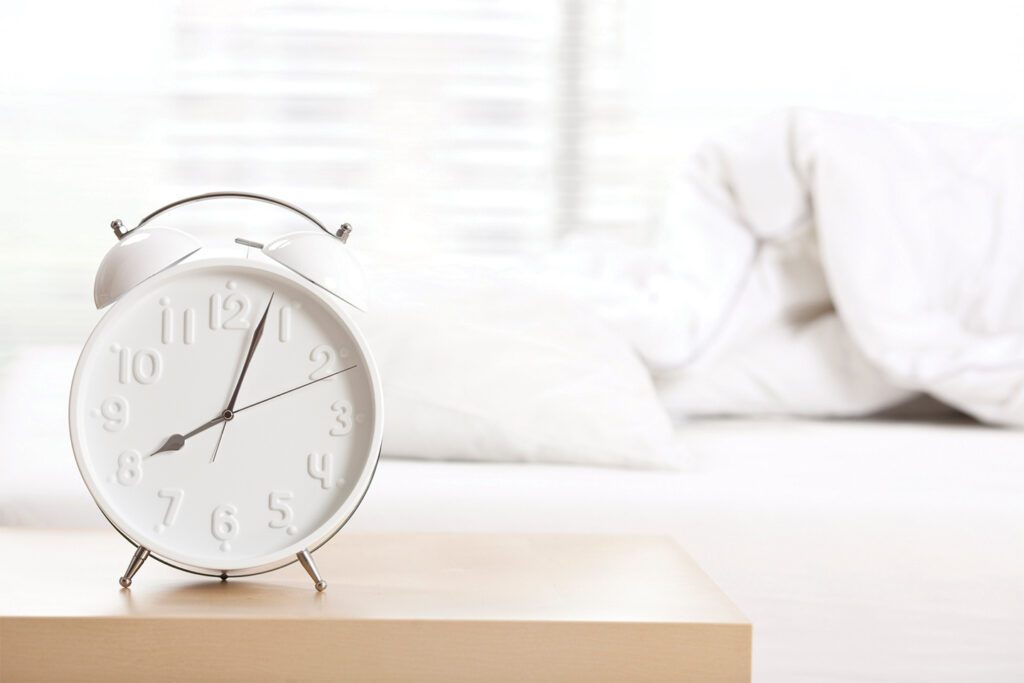It’s not uncommon to hear someone say that older adults don’t need as much sleep.
However, while sleep changes as adults age, that statement isn’t necessarily accurate. Keep reading to learn more about what’s true about sleep for older adults and what’s a myth.


Fiction: Older adults need much less sleep than younger adults.
While children do need more sleep than adults on average, the truth is that the amount of sleep needed nightly for proper physiological function doesn’t vary greatly among adults of any age. Ultimately, adults should still be getting between seven and nine hours a night. What is different when it comes to sleep for younger and older adults is the amount of time spent in the different stages of sleep.
“Stages of sleep are generally divided into non-rapid eye movement (NREM) and rapid eye movement (REM) sleep,” explains Dr. Chad Paxson, a sleep specialist at the CHI Memorial Regional Sleep Center. “A typical adult cycles between NREM and REM every 90-110 minutes. NREM sleep is further divided into N1 and N2, which are lighter stages of sleep, and N3 sleep, which is deep sleep. Compared to younger adults, older adults spend more time in lighter stages of sleep and less in the deeper stages of sleep.” Older adults may also have more periods of wakefulness after falling asleep compared to younger adults. “Usually as an individual ages, other health conditions develop that affect the sleep cycle,” says Greg Joyner, a nurse practitioner with Morning Pointe Senior Living. That being said, the total amount of time spent sleeping should be about the same.
Fiction: The amount of sleep an adult gets doesn’t have a significant effect on their health.
Inadequate sleep can have adverse effects on anyone of any age – adults included. There are several different versions of an unhealthy sleep routine. Chronically getting less than six hours of sleep per night or sleeping more than nine hours per night increases a person’s risk of morbidity and mortality. Extreme sleep deprivation even for short periods of time – such as two to three hours of sleep per night for a few weeks or months in a row – can also be quite harmful. “Chronic sleep deprivation is associated with increased inflammatory markers, alterations in our immune system response, increase in blood pressure, and elevated risk for cardiovascular disease and stroke. Reduced sleep has also been linked to insulin resistance and potential risk for diabetes,” says Dr. Paxson. Many of these conditions also increase in risk with age, so it’s important for older adults to be mindful of further elevating said risks.
“Inadequate sleep in older adults can negatively affect their memory, resulting in concentration issues and worsening mood disorders,” adds Dr. Alycia Cleinman, a geriatrician with the CHI Memorial Center for Healthy Aging. Poor sleeping habits have also been linked to weight gain, and in turn, obesity is a considerable risk factor for sleep apnea, a potentially serious sleep disorder that can make your sleep far less restful.
Sleep Tips For Older Adults
If you’re an older adult who’s having trouble sleeping, here are some things to try if you’re in search of more restful sleep:
- Get daily physical activity.
- Avoid daytime napping if possible.
- Cut back on alcohol, caffeine, and avoid tobacco products.
- Go to bed and wake up around the same time each day.
- Reduce screen time/smart device use before bedtime.
- Aim for a consistent sleeping environment that is dark, comfortable, and quiet.
Fact: There are many sleep-related issues that are more prevalent in older adults.
There are a number of things that occur in the older adult population that might affect sleep quality or patterns. “Side effects from some medications that many older adults have been prescribed can have various effects that alter the sleep pattern,” says Joyner. As the body ages, some of its functions can decline; “This may lead to things such as frequent urination at night from swelling in legs or prostate issues, which can cause frequent nighttime awakenings; joint pain from arthritis or bursitis, which can cause issues falling asleep as well as frequent awakenings; and taking stimulating medications later in day, which can also cause issues falling asleep,” says Dr. Cleinman.
Fact: Insomnia affects the older adult population, too.



Insomnia is not only the inability to fall asleep; it can be the inability to stay asleep, or always waking up earlier than you’d like to. According to Dr. Paxson, it commonly affects older adults as well. “However, many of the patients who have insomnia in my practice have many chronic medical conditions or mental health problems,” he tells us. “As the number of chronic medical or psychiatric illnesses one has goes up, so, too, will be the risk of developing insomnia.” The inability to get adequate sleep can lead to fatigue, decreased ability to concentrate, irritability, and lack of motivation, all of which can lead to decreased quality of life. Fortunately, insomnia can often be managed through pharmacologic or non-pharmacologic therapies, or a combination of the two.



Dr. Alycia Cleinman
Geriatrician,
CHI Memorial Center for Healthy Aging



Greg Joyner
Nurse Practitioner,
Morning Pointe Senior Living



Dr. Chad Paxson
Sleep Specialist,
CHI Memorial Regional Sleep Center

